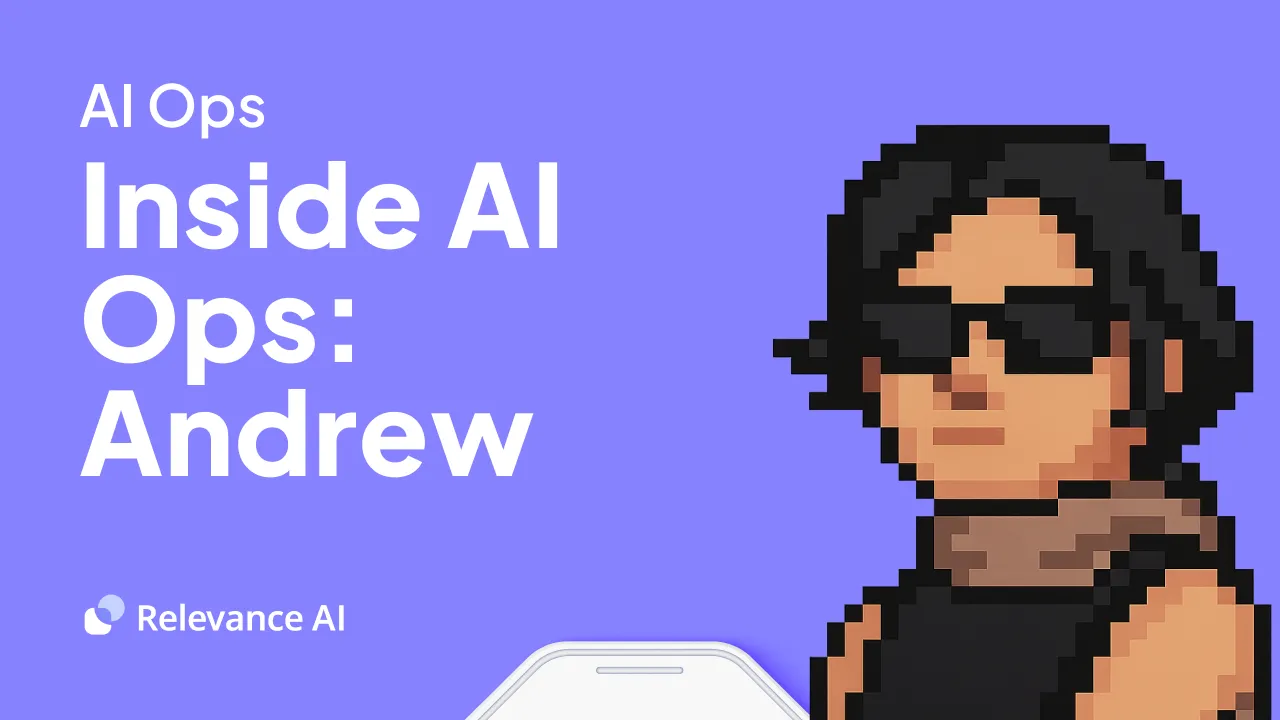
1) What’s your role today - and what’s your favorite part of it right now?
I’ve recently moved into this AI Ops role as a junior and now building and QA’ing agents internally to reduce agent failures on launch. My favorite part is seeing an idea go from concept to utility, especially when someone actually uses it and finds value.

2) Before → After: one workflow you’ll never do manually again
Before: In support, constantly switching between dozens of complex technical queries left me drained after a few hours, especially when each support query had multi-part questions that require significant mental resources/time to troubleshoot and solve.
After: I built a co-pilot customer support agent that acted as a second pair of eyes. It reads the initial query, summarizes the main points, and suggests troubleshooting methods for me to explore. When handling difficult queries, sometimes without the right context, it’s easy to get lost in the weeds or misread the problem entirely. This agent kept me focused on the step-by-step process, leading to faster and more accurate responses. Even when it wasn’t spot-on, it helped me reach a wrong answer quickly and iterate from there.
3) In one line, how do you define AI Ops from your seat?
AI Ops is about paying close attention to the internal needs of the company. Our teams are moving at full speed, and part of my role is to notice where processes can be improved with AI agents and provide the necessary material to enable and spread adoption.
4) Tell us about an agent you’re proud of (name + job) and how you know it’s “good enough.”
Our Co-pilot Customer Support Agent, Amy - originally started by the amazing Rebecca Williams, which I then inherited and adopted for our new support workflow led by Alex Waite. We knew it was good enough when our responses would match what we would accept, and what our customers are responsive to. This left human support to manually troubleshoot code or chase up internal teams to ensure a customer gets the answer they need. This drastically improved the quality of our technical responses since we now had an agent who had a recorded knowledge of our previous queries (to lookup any repeated issues) and an up-to-date index of our documentation.
5) Where must a human stay in the loop - and why?
That’s an easy one: anything involving dialog with another human being. I’ve loved talking to ChatGPT since it launched, but whenever I interact with company chatbots, even OpenAI’s, it can feel cold. Nuance, tone, and judgment are critical for escalations, edge cases, and trust-building. Agents can crunch, but humans carry the brand voice and empathy, so one of my goals when building this agent was to make it sound more human, suffice to say that there is still a lot of work to be done.
6) A favorite failure → rule story
I haven’t had a spectacular failure yet, only minor hiccups thankfully. However, our customer support agent has had its share of ‘it wasn’t supposed to do that’ moments. I’m sure larger failures are inevitable at some point, and I’m looking forward to what I can learn from them when they happen.
7) Looking 12 months ahead, what do you hope feels normal — and what will you personally spend more time on?
Using AI for creative pursuits (Art, Music, etc.). I’ve always loved the act of making, whether singing or creating visually. I hope it becomes normal to use AI as part of my artistic expression. For me, the value has always been in the making itself, so I’m shifting focus toward the parts of the process I enjoy most.
For example, I love singing made-up songs, but I was never a songwriter. I’d sing gibberish until something clicked, then use AI tools to shape it into coherent lyrics. I can understand that for some, songwriting is a spiritual process, but that’s not the part I value most (at least for now). Extrapolating from that, I’m exploring which aspects of creative pursuits I could automate with AI tools, so I can spend more time on what I actually enjoy. In contrast, using AI for work feels straightforward - it just makes sense for some reason. I suspect it’s to do with how intimate ones artistic expression could be to them.
Quick Fire Questions
1. Next thing you’ll automate
- A QA agent that tests your agents before you launch them live to production
- On personal time: a Content Creation Workforce to help me create a content pipeline for my LinkedIn debut
2. Tool you can’t live without
ChatGPT - I’m a simple man.
3. One-line advice (can be about life, not just AI Ops)
Go outside and just be. It’s advice to myself at times.
















